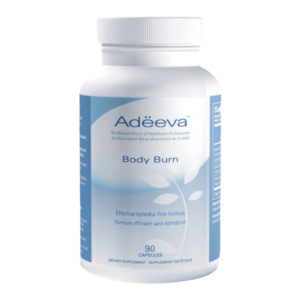
Unveiling the Secrets of Caffeine: Health Benefits, Risks, and a Heart-Healthy Alternative
Source: American Heart Association Study (December 2022)
Lifestyle Medicine Update (December 27, 2022)
Introduction:
Recent research reveals the surprising health benefits of regular caffeine consumption from coffee and tea. Beyond providing an energy boost, caffeine may reduce the risk of age-related dementia, liver cancer, and inflammation. It inhibits the mTOR pathway, lowering cancer risk, and activates the Sirtuin 1 gene, promoting longevity. Caffeine also enhances blood sugar regulation and supports cardiovascular health. However, individuals with high blood pressure should opt for green tea over coffee to minimize cardiovascular risk. Enjoy these beverages without added sugars or cream for maximum health benefits.
The Power of Caffeinated Coffee and Tea
In recent years, research has unveiled the remarkable potential of regular caffeinated coffee consumption as a health ally. It’s not just about that morning pick-me-up; it’s about fostering well-being and potentially reducing the risk of age-related dementia, liver cancer, and non-alcoholic steatohepatitis (NASH), a condition affecting the liver.
Reducing Cancer Risk and More
Caffeine, found in coffee and tea, wields multiple health-boosting abilities. One of its incredible feats is inhibiting the mTOR pathway, a biological process strongly associated with a decreased risk of several common cancers, including stomach and colon cancer. But caffeine is more than a cancer risk modulator; it also showcases impressive anti-inflammatory properties.
Caffeine can significantly reduce the release of inflammatory chemicals called cytokines, which are prevalent in various forms of arthritis. Moreover, it delves deep into cells to help thwart emerging tumor cells. These multifaceted qualities underline caffeine’s potential as a valuable ally in the battle against cancer and inflammatory conditions (source).
Unleashing Longevity with Sirtuin 1
Caffeine doesn’t stop there. It’s an activator, and its target is the Sirtuin 1 gene – the key to enhanced longevity. When activated, this gene kicks your body into high gear, bolstering your metabolism and fat-burning capabilities. It also amps up the production of new energy factories in your brain cells (mitochondria biogenesis). In the realm of inflammation, caffeine works wonders by curbing the release of cytokines, which are known culprits in arthritis and heart disease.
In the arena of blood sugar regulation, caffeine proves to be a valuable asset. By increasing insulin sensitivity, it aids in the management and prevention of type 2 diabetes and metabolic syndrome. It doesn’t stop there – caffeine demonstrates its prowess in optimizing blood cholesterol and lipid levels, contributing to a lower risk of cardiovascular disease. But the story doesn’t end here. The Sirtuin 1 gene, activated by caffeine, excels at DNA repair and elongating telomeres – the protective caps at the ends of our DNA strands. These effects are not only tied to cancer prevention but also to the elusive promise of anti-aging (source).
Caffeine and High Blood Pressure: The Unveiling of a Key Study
You may be wondering if this elixir of energy is safe to consume when you’re grappling with high blood pressure (hypertension). It’s no secret that caffeine is a stimulant, and stimulants can nudge heart rate and blood pressure upwards. Well, a substantial study, published in the Journal of the American Heart Association in December 2022, comes to the rescue. This comprehensive research explored data from more than 18,000 subjects aged 40 to 75 in Japan. Over a span of 19 years, the study kept a close watch on the subjects’ blood pressure measurements and tracked their caffeine consumption from coffee and green tea.
The findings unveiled a noteworthy insight: for individuals with blood pressure readings at or above 160-179 over 100-109 mm Hg (grade 2 hypertension), higher coffee consumption (2-3 cups per day) was linked to a doubling of the risk of cardiovascular disease-related death compared to subjects with similar blood pressure readings who abstained from coffee.
So, what’s the takeaway from this? Normal blood pressure registers at less than 130 over 85 mm Hg, while high-normal readings range from 130-139 over 85-89 mm Hg. On the other hand, grade 1 hypertension, which signifies high blood pressure, is recorded at 140-159 over 90-99 mm Hg. Fascinatingly, green tea, despite its caffeine content, did not contribute to an increased risk of cardiovascular disease-related deaths for those with normal blood pressure or any degree of high blood pressure. In essence, it emerges as a safer choice for individuals with high blood pressure concerns (source).
Brewing up Health: Coffee, Tea, and Your Heart
To recap, for most people, enjoying two to three cups of caffeinated coffee daily can unlock a host of remarkable health benefits. Green tea, and likely black tea, also join the ranks as powerful allies. But for individuals contending with high blood pressure, it may be prudent to steer clear of caffeinated coffee. Green tea, with its plethora of health benefits, emerges as an enticing alternative for those who wish to maintain a heart-healthy lifestyle. Let’s not forget the sage advice to enjoy these beverages in their natural form – adding cream, sugar, or other embellishments can dilute their health benefits and potentially elevate cholesterol and blood sugar levels.
As you savor that cup of coffee or tea, know that you’re indulging in more than just a warm, comforting drink. You’re tapping into a world of health potential, an elixir that may invigorate your body and prolong your vitality.
References:
- Teramoto M et al. Coffee and green tea consumption and cardiovascular disease mortality among people with and without hypertension. J Am Heart Assoc (December 21, 2022) (source).
- Medscape: Greater Coffee Intake in Severe HTN Tied to Higher CV Mortality. Marilynn Larkin (December 22, 2022) (source).
Dr. Meschino
Recommended Supplements

Dr. James Meschino
ABOUT THE AUTHOR
Dr. James Meschino, DC, MS, ROHP, is an educator, author, and researcher having lectured to thousands of healthcare professionals across North America. He holds a Master’s Degree in Science with specialties in human nutrition and biology and is recognized as an expert in the field of nutrition, anti-aging, fitness, and wellness as well as the author of numerous books.



